Salt Flowers From The Years Of Drought — Colin Insole
Mount Abraxas Press MMXX
My previous reviews of Colin Insole: https://dflewisreviews.wordpress.com/colin-insole/ and of Mount Abraxas Press: https://dflewisreviews.wordpress.com/complete-list-of-zagava-ex-occidente-press-books/
When I read this book, my thoughts will appear in the comment stream below…
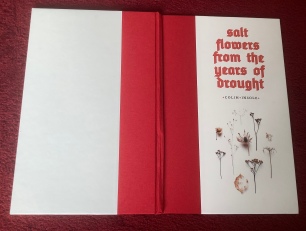
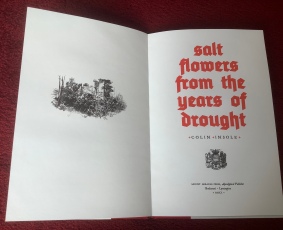
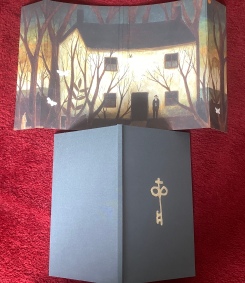
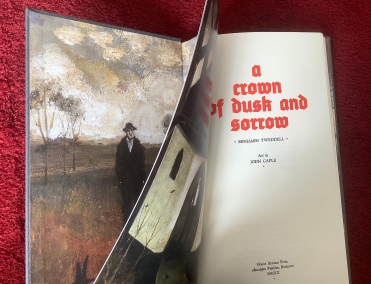
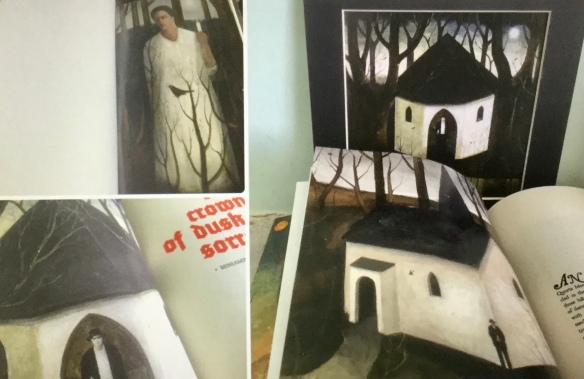
The UK drought of 1976 is mentioned in this Insole story when the protagonist was 16, but, in that year, I was as old as I look within the above painting that I have now discovered is by John Caple.
About a foot by half a foot, this gratuitously sturdy and mind-bogglingly larger-than-life book, has about twenty pages, but I hesitate to call them pages as they are more like book covers in themselves, a handful of them completely and stiflingly and engulfingly black, between two even thicker (real) book covers, all of it textured, upholstered and built to Mount Abraxas’ steepest ever standards. The Colin Insole work itself, in large print, is ensouled within pages 5 to 16. (Click long rectangle above to see me seeing you!)
About a foot by half a foot, this gratuitously sturdy and mind-bogglingly larger-than-life book, has about twenty pages, but I hesitate to call them pages as they are more like book covers in themselves, a handful of them completely and stiflingly and engulfingly black, between two even thicker (real) book covers, all of it textured, upholstered and built to Mount Abraxas’ steepest ever standards. The Colin Insole work itself, in large print, is ensouled within pages 5 to 16. (Click long rectangle above to see me seeing you!)
salt flowers from the years of drought
by Colin Insole
“Outlines of great palaces and temples, seemed like smashed watermarks.”
In telling contrast to this book’s overwhelming sturdiness! So, perhaps not gratuitously built, after all!
The story of George Quarrendon, a story worthy – by a million mental and spiritual resonances if not by a singular sturdy story’s plot – of the magnificent canon of Colin Insole stories. The salt marshes near where I live, well maybe, but certainly salt marshes somewhere! George in 2006 dabbles with diableries of the past, the 1976 drought, cricket on a cricket green near the churchyard, plants that grew from the rubble of the London Blitz, from the Hiroshima bomb, plus a doctor’s now prophetic and telling reference to an epidemic and a curse’s cures that might or might not work, cures that include a red flower that grows in salt and ash. A flower that haunts this story. The painting of Goliath, notwithstanding. And much more.
Pingback: A Book That Sucks You In | THE DES LEWIS GESTALT REAL-TIME REVIEWS Edit